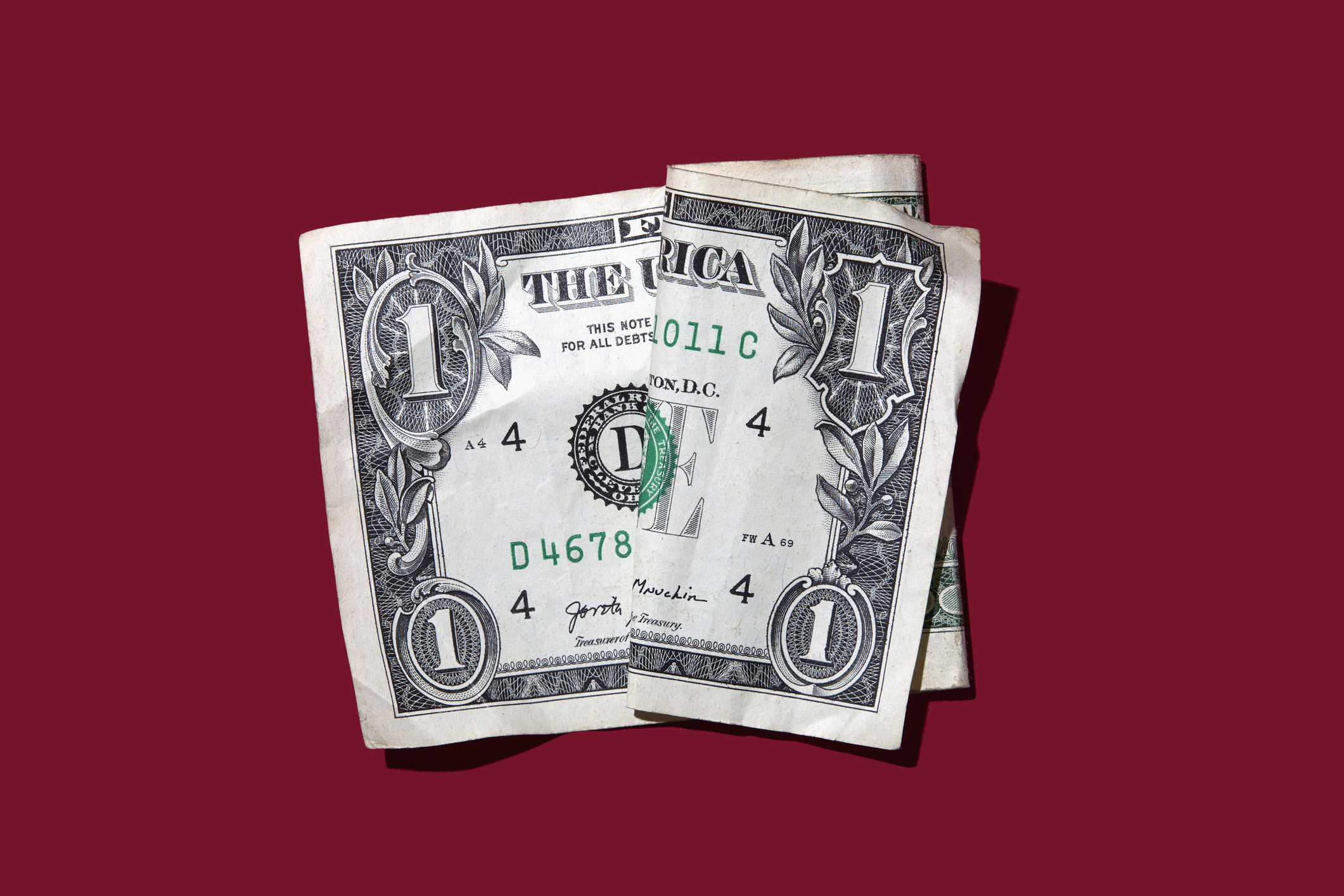No Tax on Tips? How the New Tip Deduction Actually Works
Will you stop paying taxes on your tip income? New tax rules may allow some workers to reduce their tax liability on qualified tips. Here’s what you need to know and how to claim it.


Profit and prosper with the best of Kiplinger's advice on investing, taxes, retirement, personal finance and much more. Delivered daily. Enter your email in the box and click Sign Me Up.
You are now subscribed
Your newsletter sign-up was successful
Want to add more newsletters?
For millions of workers, tips aren’t just a perk — they’re essential. Data show that about 4 million people in the United States, or one out of every forty workers, depend on tips to pay the rent and put food on the table.
However, the IRS usually taxes that money. If tips are part of your pay, the federal tax agency treats every dollar you receive, whether left on the table in cash or added to a credit card receipt, as regular income.
But that has now changed for many workers, following President Donald Trump's signing of the so-called "big beautiful bill" (BBB) on July 4, 2025.
From just $107.88 $24.99 for Kiplinger Personal Finance
Become a smarter, better informed investor. Subscribe from just $107.88 $24.99, plus get up to 4 Special Issues

Sign up for Kiplinger’s Free Newsletters
Profit and prosper with the best of expert advice on investing, taxes, retirement, personal finance and more - straight to your e-mail.
Profit and prosper with the best of expert advice - straight to your e-mail.
The law includes a provision commonly referred to as the “No Tax on Tips Act,” which created a new federal income-tax deduction for certain tipped workers.
As a result, millions of workers may keep more of what they earn — at least after federal income taxes — beginning with income earned in 2025, typically claimed on tax returns filed during the 2026 filing season.
Here’s more of what you need to know.
Are tips being taxed in 2025?
By law, you have to report all your tips to your employer if they total $20 or more in a single month.
- Your employer includes those tips in your paycheck calculations, withholding federal income tax, Social Security tax, and Medicare taxes, just like they do for your hourly wages.
- When you file your tax return, your reported tips are included on your W-2 and added to your other income to determine how much you owe.
- Even if you get paid in literal cash, the IRS expects you to keep a record and report it.
So, tips haven't historically been treated any differently than your regular paycheck when it comes to taxes.
But under the 2025 new tax law, starting with the 2025 tax year (returns you'll file now, in early 2026), eligible workers can deduct up to $25,000 in reported tip income from their federal taxable income when they file their returns.
However, the deduction phases out for those earning over $150,000 ($300,000 for joint filers) and is scheduled to expire after 2028.
New tax deduction for qualified tip income
So, what is in the new Trump tax law regarding tip income? Here’s a quick summary.
A Deduction for Cash Tips: Workers in qualifying tipped occupations can now deduct up to $25,000 of those tips from their taxable income for tax years 2025 through 2028.
Who’s Eligible? The deduction is available to specified workers who earn up to $150,000 a year ($300,000 for joint filers). The income limit will be adjusted for inflation.
Which Jobs Qualify: The new deduction applies to jobs where tipping is customary — think servers, bartenders, hair stylists, and nail techs. Which jobs qualify: Eligibility is limited to occupations the IRS has identified as “customarily tipped,” like servers, bartenders, and certain personal-service workers. Treasury and the IRS issued guidance identifying qualifying occupations ahead of the 2026 filing season. (More on that below.)
Employer Benefit: The new tax law also expands a tax credit for certain businesses, allowing them to claim payroll tax credits for tips, as restaurants do.
What no tax on tips doesn't do
Despite the excitement over this change, there are some things the new deduction doesn’t cover.
The provision only applies to qualified cash tips. However, for IRS tax purposes, literal cash tips, credit card tips, and tips made through electronic payment methods like apps are traditionally treated the same.
Non-cash tips are still considered taxable by the IRS but are not covered under the new tax law.
- Also, there’s no payroll tax break involved. That means you will still pay Social Security and Medicare taxes on your tips, even if you claim the income tax deduction.
- And…not everyone will benefit. About a third of tipped workers reportedly make so little they don’t owe federal income tax.
- Other workers, like cooks, dishwashers, or other behind-the-scenes staff who don’t usually receive tips, might not receive a tax break under this bill either.
No tax on tips jobs list
The Treasury Secretary and IRS are responsible under the new tax law for deciding which workers can use the new tip income tax break. They have published a list of "customarily tipped" occupations, based on jobs where people usually receive tips
The list of roughly 68 job categories that reportedly qualify for the new “no tax on tips” deduction under the 2025 Trump tax law was released by the U.S. Treasury and IRS late last year.
The expansive list covers a broad range of service, entertainment, hospitality, and home service jobs where tipping is customary. Included are traditional roles.
- Some of these include bartenders, waitstaff, chefs, and food preparation workers, as well as positions in entertainment and events like dancers, musicians, digital content creators, and gaming industry workers.
- Hospitality and guest service roles like bellhops, concierges, and hotel clerks also qualify.
- The deduction extends further to various home service providers, including plumbers, electricians, HVAC technicians, and landscapers.
How to claim the tip income deduciton
To claim the tip income tax deduction, workers must still report their tips as income.
For purposes of the deduction, tips generally must be reflected on a Form W-2, Form 1099-NEC or 1099-K, or be reported by the worker on Form 4137 to be treated as reported tip income.
Note: The IRS has added a new Schedule 1-A to Form 1040 for the 2025 tax year, which is where eligible taxpayers claim the tip-income deduction when filing in 2026.
Expect your tax software or tax preparer to ask questions about whether you received tip income in 2025.
Was no tax on overtime approved?
The proposal to eliminate federal income tax on overtime pay, which was also a Trump campaign pledge, was a separate measure.
And yes, the Trump tax bill also introduces a temporary deduction for some overtime pay.
- The legislation offers eligible single filers a deduction up to $12,5000 and $25,000 for married couples filing jointly, for tax years 2025 through 2028.
- The overtime pay tax deduction phases out for earnings over $150,000 (single) and $300,000 (joint filers).
- Only overtime pay mandated by the Fair Labor Standards Act (FLSA) qualifies for the deduction.
For more information, see What's Happening With Taxes on Overtime Pay?
Tax on tips: What this means for you
For eligible workers, the new deduction could reduce federal income taxes when filing returns during the years it is available.
However, for those who already don’t earn enough to owe income tax, this new bill won’t affect them.
Still, extra cash is welcome for many in the service industry. As the IRS implements the tax provisions in the new law, supporters say many tipped workers will see more take-home pay.
But as always, consult a tax professional or financial planner to understand how these changes might impact your tax situation.
This article has been updated to include information about qualifying occupations.
Read More
Profit and prosper with the best of Kiplinger's advice on investing, taxes, retirement, personal finance and much more. Delivered daily. Enter your email in the box and click Sign Me Up.

Kelley R. Taylor is the senior tax editor at Kiplinger.com, where she breaks down federal and state tax rules and news to help readers navigate their finances with confidence. A corporate attorney and business journalist with more than 20 years of experience, Kelley has helped taxpayers make sense of shifting U.S. tax law and policy from the Affordable Care Act (ACA) and the Tax Cuts and Jobs Act (TCJA), to SECURE 2.0, the Inflation Reduction Act, and most recently, the 2025 “Big, Beautiful Bill.” She has covered issues ranging from partnerships, carried interest, compensation and benefits, and tax‑exempt organizations to RMDs, capital gains taxes, and energy tax credits. Her award‑winning work has been featured in numerous national and specialty publications.
-
 4 High-End Experiences Worth the Splurge After 50
4 High-End Experiences Worth the Splurge After 50These curated date ideas provide the perfect backdrop for couples ready to enjoy the very best that the world has to offer.
-
 Health Care Stocks Have Sagged. Can You Bet on a Recovery?
Health Care Stocks Have Sagged. Can You Bet on a Recovery?The flagging health care sector has perked up a bit lately. Is it time to invest?
-
 Costco's Auto Program: Can Membership Pricing Really Save You Money on a Car?
Costco's Auto Program: Can Membership Pricing Really Save You Money on a Car?Costco's Auto Program can simplify the car-buying process with prearranged pricing and member perks. Here's what to know before you use it.
-
 2026 Tax Refund Delays: 5 States Where Your Money Is Stuck
2026 Tax Refund Delays: 5 States Where Your Money Is StuckState Tax From New York to Oregon, your state income tax refund could be delayed for weeks. Here's what to know.
-
 Paper Tax Filers Face Long Wait as IRS Digitization Effort Stalls
Paper Tax Filers Face Long Wait as IRS Digitization Effort StallsTax Filing Last April, the IRS launched its Zero Paper Initiative to speed up paper tax return processing. The project isn’t going well.
-
 How One Extra Dollar of Income Can Cost You Thousands in Retirement
How One Extra Dollar of Income Can Cost You Thousands in RetirementRetirement Even modest changes in retirement income can raise Medicare premiums under IRMAA. Here’s how a small increase can affect your retirement costs.
-
 First the Penny, Now the Nickel? The New Math Behind Your Sales Tax and Total
First the Penny, Now the Nickel? The New Math Behind Your Sales Tax and TotalRounding Tax A new era of "Swedish rounding" hits U.S. registers soon. Learn why the nickel might be on the chopping block, and how to save money by choosing the right way to pay.
-
 Trump Tariffs Supreme Court Ruling: What's Next for Consumers and Retailers
Trump Tariffs Supreme Court Ruling: What's Next for Consumers and RetailersTax Law This landmark decision will reshape U.S. trade policy and could define the outer boundaries of presidential economic power for years to come.
-
 Over 65? Here's What the New $6K Senior Tax Deduction Means for Medicare IRMAA
Over 65? Here's What the New $6K Senior Tax Deduction Means for Medicare IRMAATax Breaks A new tax deduction for people over age 65 has some thinking about Medicare premiums and MAGI strategy.
-
 U.S. Congress to End Emergency Tax Bill Over $6,000 Senior Deduction and Tip, Overtime Tax Breaks in D.C.
U.S. Congress to End Emergency Tax Bill Over $6,000 Senior Deduction and Tip, Overtime Tax Breaks in D.C.Tax Law Here's how taxpayers can amend their already-filed income tax returns amid a potentially looming legal battle on Capitol Hill.
-
 How to Open Your Kid's $1,000 Trump Account
How to Open Your Kid's $1,000 Trump AccountTax Breaks Filing income taxes in 2026? You won't want to miss Form 4547 to claim a $1,000 Trump Account for your child.